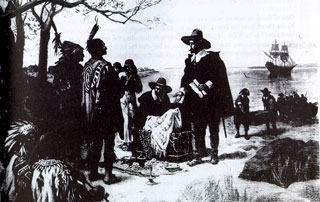
According to legend, the island of Manhattan was purchased from the Lenapes by the Dutch for $24.
“Wow, what a bargain!”
Perhaps. Over the past 75 years or so, the stock market has had an average return of 8%. If the Lenapes or the Dutch had taken that $24 in 1626 and invested it at 8% a year, it would currently be worth $103.4 trillion. I’m not sure what the value of the real estate in Manhattan is today (quite high, I’m sure), but if you were trying to forecast several hundred years into the future and knew you could get 8% on your money, you probably would have been better off investing the money vs. speculating on the future value of land. One man’s Manhattan is another man’s Calico.
Of course, the Lenapes likely had no concept of land ownership, so the $24 was merely transferring the right to use the land to the Dutch. So the questions to put to the lawyers would be:
Since the Lenapes had no conception of property ownership, would that invalidate the agreement between them and the Dutch?
If the Lenapes still own Manhattan and the Dutch paid $24 for a perpetual lease on the land (which is likely the way the Lenapes thought of it), does this mean there is no way for them to cash in on the value of their land?
When New Amsterdam became New York, did the rights of the Dutch transfer to the English?
When New York joined a union of rebel colonies, did the rights of the English transfer to the Americans?
Just where did this bizarre idea of owning land come from anyway? No matter how you slice it, there’s no good justification for it. That said, if you have the opportunity to buy some cheap land in LA at a good interest rate, it’s probably a good investment.